Jeremie Averous's Blog, page 62
February 27, 2018
Why We Should Be Scared More Often
” If you’re not scared a lot you’re not growing very much. Discomfort is a reflection of growth” – writes Robin Sharma.
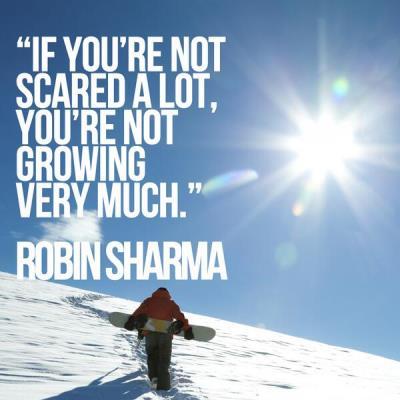 Conversely, if we want to grow we need to learn to be scared more often, as we seek to escape from our comfort zone.
Conversely, if we want to grow we need to learn to be scared more often, as we seek to escape from our comfort zone.
Of course the limit is survival, but it is true that from time to time, getting a bit scared by going out of one’s comfort zone is a great feeling to seek.
If it is possible to do that is a secure environment, all the better and it is a great occasion to go even further in discomfort: the best training environments push one to the limits of discomfort.
How often do you seek discomfort and scare?

February 24, 2018
How To Make Bold Moves More Frequently
Pamela Slim in her post ‘One bold move‘ advocates making bold moves more often, because while they may fail, they may also release unexpected power and advance our projects.
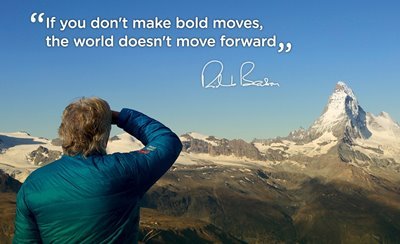 Her post contains several examples including personal examples of the possibilities offered by bold moves.
Her post contains several examples including personal examples of the possibilities offered by bold moves.
It is true that shyness and social conventions prevents us from considering the bold moves that would be so easy to take. The fear of rejection also participates to this avoidance.
Still, not only as Richard Branson says, “if you don’t do bold moves, the world doesn’t move forward“. If you don’t make bold moves, you won’t move forward. It’s all about courage and making them. And we’ll survive anyway, so why not make those bold moves?

February 22, 2018
How to Improve Personal Attraction Through our Imperfections and Frailties
Following up from our previous post ‘How to Direct Your Self-Development: Become a Center of Attraction‘, it is useful to reflect a bit more on what makes us an attractive resource for others.
 I like particularly this quote by Hugh MacKay, an Australian social researcher: “I suspect the secret of personal attraction is locked up in our unique imperfections, flaws and frailties“. It gives an interesting orientation to the aspects we can consider when we want to develop our personal attraction. In addition to our capabilities and resources, being able to build on our imperfection and flaws is an interesting approach that could be used more consciously.
I like particularly this quote by Hugh MacKay, an Australian social researcher: “I suspect the secret of personal attraction is locked up in our unique imperfections, flaws and frailties“. It gives an interesting orientation to the aspects we can consider when we want to develop our personal attraction. In addition to our capabilities and resources, being able to build on our imperfection and flaws is an interesting approach that could be used more consciously.
How can we build on our imperfections, flaws and frailties to improve our attraction? It goes through proper communication and unveiling, which comes to exposing ourselves and taking risks. An interesting way of looking at how we behave socially.

February 20, 2018
How to Direct Your Self-Development: Become a Center of Attraction
Following on our post building on the excellent LinkedIn post “What I Wish I Knew At 22“, one particular comment has also raised my attention: “Stop chasing the girl, the promotion, and the raise. Become the person who attracts the girl, earns the promotion, is worthy of the raise. Spend your time growing into a more interesting person, and the gravitational force of the universe will shift towards you.”
 Beyond the limited list of things to aim for (!) that would certainly need to be extended, I like this hint that we need to seek attracting the good stuff in general, rather than constantly chasing it. It is the ultimate aim of any marketing campaign: get people to come to us rather than having to seek them one by one.
Beyond the limited list of things to aim for (!) that would certainly need to be extended, I like this hint that we need to seek attracting the good stuff in general, rather than constantly chasing it. It is the ultimate aim of any marketing campaign: get people to come to us rather than having to seek them one by one.
It is also quite true on a personal level, and it is interesting to take this viewpoint or objective when considering possible direction for self development. Let’s evolve into someone that attracts what we want in life, and spend less time chasing for it.

February 17, 2018
How Social Media Ratings Can Be Tricked – Lessons Learnt on Personal Freedom
Tricking social media popularity has become quite an industry, and this includes social media fake user factories in many countries. One of the funniest testimony on the matter is the excellent “I Made My Shed the Top Rated Restaurant On TripAdvisor“. It is unclear if it is fully genuine, but it is worth the read nevertheless, if just for the creativity of the author (and the fake food pictures make-of).
 The interesting point in this post is how the author managed to trick the fraud check of Tripadvisor (on the basis that nobody would fake a restaurant). It shows that the creativity of individuals is always greater than the creativity of the institutions behind the most popular services.
The interesting point in this post is how the author managed to trick the fraud check of Tripadvisor (on the basis that nobody would fake a restaurant). It shows that the creativity of individuals is always greater than the creativity of the institutions behind the most popular services.
Of course this also leads to the question of how much we rely on those social services for taking daily decisions (because they add so much value to our lives compared to the previous guides and similar solutions), and if we are manipulated, to what level. We are certainly somewhat manipulated, if indirectly by other social media users, restaurant and hotel owners. Does it exceed a limit that really jeopardises our freedom of decision? Is it really more than before when we were manipulated by the editors of well known guides? The question is open. The level of scrutiny on the topic of fake news and fake ratings will certainly give us a clearer view on the matter.

February 15, 2018
How To Account for Impermanence in Our Decision-Making
I quite like this LinkedIn post that had some success and widespread readership: “What I Wish I Knew At 22“. It is full of interesting recommendations. One of the main recommendations is about the impermanence surrounding us and the fact that success or failure one day means nothing at the scale of a life.
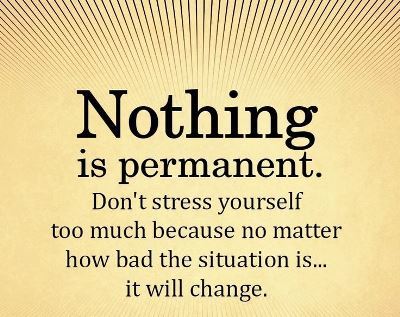 “There are very few decisions in life that are permanent. Very little in your life will be definitional unless you choose to make it that way. You aren’t defined by your last success any longer than you are defined by your last failure. The only one super-focused on your story is you, so move on and keep going.”
“There are very few decisions in life that are permanent. Very little in your life will be definitional unless you choose to make it that way. You aren’t defined by your last success any longer than you are defined by your last failure. The only one super-focused on your story is you, so move on and keep going.”
This has an interesting direct consequence in our personal decision-making: as long as it does not kill us (or bankrupts us, which is the equivalent in financial life), decisions can be reversed – and a bad decision is not the end. Therefore, there is no need to agonise over it too long.

February 13, 2018
How To Negotiate the Diplomatic Way
I like the famous proverb that states “Diplomacy is the Art of letting someone else have your way“. It is quite an essential quote, that is of course valid in the context of any negotiation.
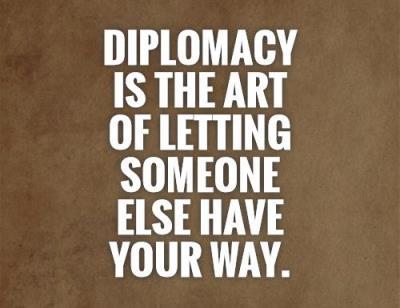 I like it particularly because of the emphasis it puts on getting the other party finally move in the direction we desire. Of course this might border on manipulation, but still it is an interesting viewpoint to consider any negotiation.
I like it particularly because of the emphasis it puts on getting the other party finally move in the direction we desire. Of course this might border on manipulation, but still it is an interesting viewpoint to consider any negotiation.
The ultimate point of any successful negotiation should be to seek a win-win outcome, and in that sense, finding a way for the other party to move in the same direction is a given.
The quote leaves open the possibility that a third party might also move in our direction and not directly the opposite party. It is also an interesting strategy to consider in any negotiation.
Quite a wonderful quote that leads to interesting considerations!

February 10, 2018
How To Organize Creativity in Cycle and Seasons
I came across a very interesting quote from Robin Sharma: “Creativity comes in seasons. There’s a time to harvest your ideas. And there’s a time to let the field sit fallow.”
 From my experience I concur that there are times where I am very creative, and other times where I rather gather material and let my creative spirit rest. It is some kind of rhythm that was until now imposed by my energy level.
From my experience I concur that there are times where I am very creative, and other times where I rather gather material and let my creative spirit rest. It is some kind of rhythm that was until now imposed by my energy level.
It also means that it is all right to have periods of lesser productivity, of resourcing.
There might actually be several rhythms embedded in each other: a daily creativity rhythm, with a specific time of the day more suitable; a weekly/monthly rhythm; and a yearly rhythm. All those interdependent rhythms can merge together into a variable, personal and natural rhythm.
It is one further step to organize this rhythm voluntarily like Robin Sharma suggests. I find the suggestion quite worthwhile and worth trying. And you?

February 8, 2018
How Experience Allows Us to Tackle More and More Complicated Challenges
Ralph Waldo Emerson wrote “Life is a succession of lessons which must be lived to be understood. All is riddle, and the key to a riddle is another riddle.”
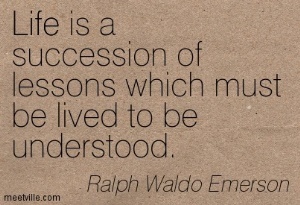 The first part of the quote is well known (and attributed on internet to various other people). What I find interesting is how the second part of the quote complements the first.
The first part of the quote is well known (and attributed on internet to various other people). What I find interesting is how the second part of the quote complements the first.
What he says is basically that experience comes from living through a number of lessons, and that can’t be fully understood theoretically by for example reading other people’s experience. The interesting part is how he describes that the key to life challenges is to be derived from one’s experiences, and that with experience we can overcome more and more complicated challenges and riddles.
As I become more experienced with things in life, I find more and more challenges and situations that need to be understood. I did not see them before. On one side I see how foolish I could be when I was younger, and and the other side I see how many the secrets of life remain before me, but that I have progressively the resources I need to tackle them. And that’s what makes life so interesting.

February 6, 2018
How Procrastination Can Be an Escape Mechanism
Robin Sharma writes “Procrastination is an escape mechanism for people scared to do their best work“. The concept is quite similar to the concept of ‘Resistance’ developed by Steven Pressfield in the ‘War of Art’.
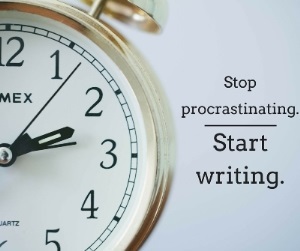 Still it is an excellent reminder that we should note procrastination as a symptom that Resistance is trying to make us escape from doing our Work, that is to say, our best creative work, the work that takes all our resources to be achieved, the work that can change the world.
Still it is an excellent reminder that we should note procrastination as a symptom that Resistance is trying to make us escape from doing our Work, that is to say, our best creative work, the work that takes all our resources to be achieved, the work that can change the world.
Procrastination is not good or bad. It is sometimes quite good to postpone something or to relax. But when it comes while we should be doing our best work, it is a sign that we try to escape from our responsibility and from our capability.




